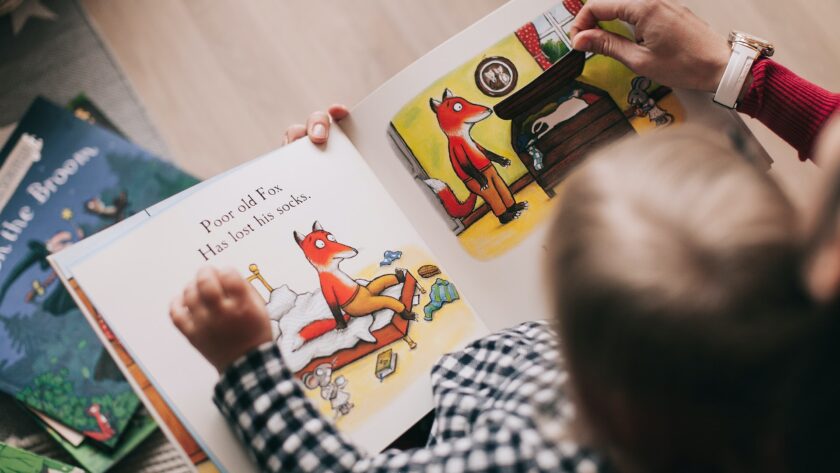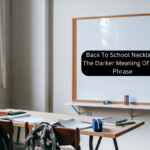You can never be too early when teaching kids how to read and write. Sure, the standard procedure is to leave this for when school starts, but there are so many things that you can do much sooner than that. For instance, you could start kindergarten with some of the most basic steps to give them a slight advantage for later.
1. Letter recognition and sounds
The first thing you want to start with are letter recognition and sounds.
You can start by teaching kids to recognize and name each letter. This can be done through puzzles, letter magnets, alphabet books, etc. You can develop role-playing games where they must develop as many words as possible, starting with the letter A to beat back the invading aliens. Kids learn best through play, which you must use to your advantage.
One more thing you can do is make this more personal. Ask them to equate a single letter with a word that is meaningful to them. Get a tutor to help your kindergartener build a strong foundation in literacy. For instance, if their sibling’s name starts with the letter L, this name can become the strongest association. A doesn’t have to stand for Alpha, and W doesn’t have to stand for whiskey. After all, we’re in the kindergarten, not in the marine core.
2. Find the right methods
Finding the right methods is the most challenging part of teaching literacy to young children. Still, there are so many interesting games that you could try out. A classic is the guessing game “I Spy,” which encourages kids to expand their vocabulary. This is a common car game but can also be taught to the kindergarten class.
There are also many great variants, like adding yes-or-no questions. This also helps kids advance in critical thinking.
Fortunately, you can access many interactive games and resources in the modern era. According to specialists from Livestream Learning Studio, you can teach students how they want to learn with the right resources. By giving them an interactive classroom where they can actively participate at any point, you’re helping them get more motivated.
3. Shared experience
While this is not always the case, kindergarten kids are more concerned with impressing their peers than impressing their teachers. So, why not encourage them to collaborate and work on group projects? This helps them get more immersed and encourages kids to help each other grow. Surrounding yourself with people who help you grow is one of the habits you can benefit from throughout your life.
Interactive writing is also something that you can enhance through collaboration. For instance, you can encourage kids to write words one letter or utter sentences one word at a time. If you encourage each kid to participate in this project, they can start developing some basic semantical understanding of the language. Just as words work together to give a sentence meaning, they, too, will work together to complete this difficult project.
4. Work extra hard on their vocabulary
Sure, some may argue that it’s too early to teach kids to read and write in kindergarten, but it’s not too late to start expanding their vocabulary. Kindergarten literacy homework success comes from engaging children in fun and meaningful reading and writing activities at home. They can learn a new word every day, and they can do this through play. For instance, they can get a word card each day or ” homework ” to learn two or three synonyms of a certain word. This way, they can also involve their parents or guardians.
Keep in mind that there’s more to vocabulary than just reading and writing. First, they need to learn how to use the word in a proper context and understand its definition. Without this step, knowing how to spell a word is completely useless. So, start with the meaning and context; the rest will come naturally.
5. Simplicity and repetition
There’s nothing that you can learn without repeating it myriad times. Sentence repetition is incredibly important; you can do this through play to make it less monotonous. Learning things by heart is a method that often doesn’t have an alternative. Self-directed learning in kindergarten literacy can be as simple as a child choosing which book to read independently. True comprehension occurs when you understand something, but language has many aspects that are not intuitive. Exceptions are one such example, and the spelling of certain words may be another.
Remember that kids are more susceptible to this form of knowledge. The older the learners become, the “dryer” this type of learning is. It’s harder to make kids repeat through play, and motivating them to do these boring things repeatedly becomes much harder. This is one of the reasons why it’s easier to teach younger kids and why the knowledge they’re exposed to this early gets adopted so effectively.
6. Teach them discipline
To stay sharp, you need to learn every single day. By developing your own kindergarten curriculum and abiding by it daily, you’re helping kids become more disciplined.
Sure, your immediate objective is to teach them how to read, write, and use words the right way, but the positive consequences of this program may go far beyond that. You may also help them develop learning habits and adopt learning strategies that they can later apply even in STEM fields or while pursuing training in professional photography.
Remember that some basic principles (like the importance of repetition that we’ve just explained), the fact that a single letter can change the entire word and that the work is not done until it’s perfect are priceless.
Also, you are teaching them to read. This means you’re opening their minds to a new world of possibilities. It’s one of the biggest favors anyone will ever do for them, and you should feel proud.
Wrap up
Teaching children how to read and write is a noble endeavor, and it’s never too early to start. The only bottleneck is their ability to stay focused and their motivation. Still, you can overcome this by gamifying the experience and helping them get more immersed in the subject. In the end, remember that this goes beyond just learning to read and write. This is their first step into the world of education, so make sure to help them take it with great certainty.




